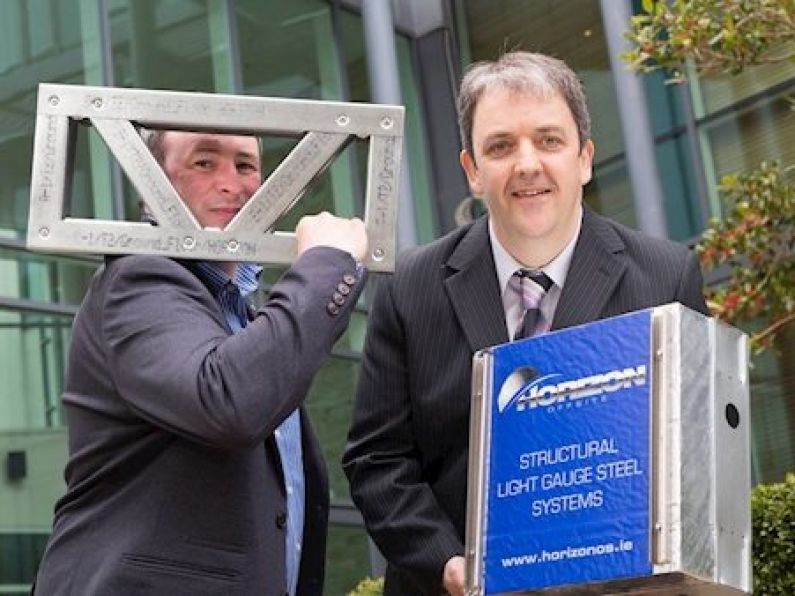Set up just 18 months ago, rapid-build firm Horizon has set its sights far and wide, writes Trish Dromey
Manufacturing rapid build, light gauge steel structures for housing and hotel projects, Tipperary start-up Horizon Offsite is set to raise €500,000 for expansion in Europe.
Horizon managing director and co-founder Ger Fahey says the demand for rapid build construction methods is increasing because of housing shortages, here and in the UK, and that business has been booming for the company which was set up just 18 months ago.
“We have already completed 15 projects and are working on another 13. We are now at the design stage for a €1.5m hotel in Naas with 70 rooms and in November we will start work on a £1.5m social housing project in Kent involving 48 houses and 36 apartments,’’ he says.
To date, the majority of the projects have been in the UK and Ireland but the Cahir-based company, which employs a staff of 19, has just finished a project in Malta.
Because of uncertainty about Brexit, Horizon now plans to diversify into new markets in Europe and, down the road, to sell into the US.
The company’s initial focus was on the UK — a large market with a requirement for 225,000 new houses a year — where the company’s three founders had experience and contacts.
Mr Fahey, along with cofounders Martin and Tom Luddy, had previously worked for an Irish light gauge steel construction company supplying the UK market.
Setting up at the Cahir Business Park last year, the founders invested over €400,000 of their own funding in equipment.
“Within a month we had started work on an apartment project in Watford and another in London,’’ says Mr Fahey, noting that the staff size grew to seven by the end of the year.
The company didn’t originally apply for certification in Ireland, partly because the founders saw the UK as an easier market where offsite construction methods were more widely used than here.
“It was also more difficult to get certification in Ireland and it was more difficult to develop sales here because structural engineers prefer traditional building methods,” he notes.
But this year Horizon has applied for NSAI certification and is growing sales.
“We met with the Minister for Housing and the Dáil committee for housing and have put in a tender for a contract for a 57-house development in Clonmel,’’ he says.
Projects completed by the company in Ireland include a 10-unit development in Newcastle West, and it has started work on a 230-home development in Co Clare.
Horizon has now sold to over 25 construction companies: Customers in the UK include Blue 3, Unite Property and Charles Edwards.
Irish sales include Cfield, SilverRock, and Glenbrier.
To date, around 80% of its work has been residential but the contract for the hotel in Naas is one of the company’s largest projects yet.
Mr Fahey says that for the future he expects to develop sales of hotels as well as care homes, student accommodation, and schools.
In the past, he says, the biggest obstacle for offsite construction companies such as Horizon was resistance to making a change from traditional building methods.
But he says there is now growing recognition of the benefits of rapid-build.
“Using light gauge steel structures manufactured offsite we can complete a project in half the time,’’ he says.
The other benefits of using steel is its precision and that there is no shrinkage.
It also has excellent fire ratings.
Self-funded with help from Tipperary Local Enterprise Office, Horizon is now planning to raise additional capital for new equipment as part of its plan to expand into Europe.
“The project in Malta came about through a UK contractor with operations in Europe.
“We see an opportunity to develop further sales through UK contractors and we are also in discussions with companies in Portugal and Spain,” he says.
Immediate plans include hiring two new employees by the end of the year.
It also wants to set up a new office in London, in early 2019.
In its business plan, the company projects it will 63 staff and multi-million euro sales at the end of the next five years.






